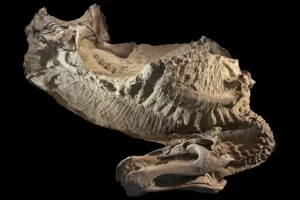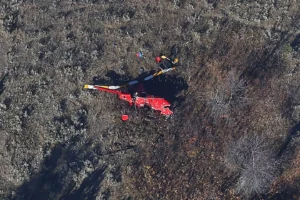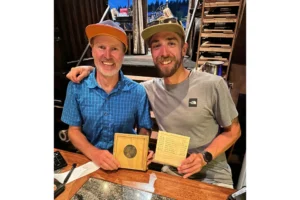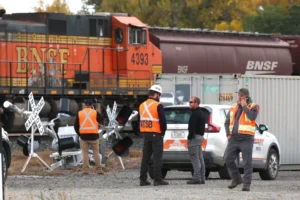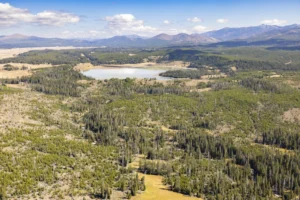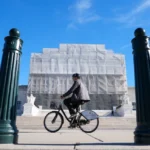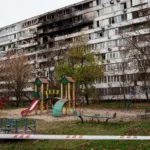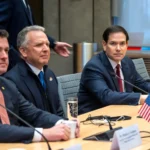FRIDAY FOCUS: Tribal Leader Launches Nonprofit to Address Societal Trauma
Blue Mountain CEO Cy Lee looks to use data to prevent domestic violence, addiction and mental health issues on his reservation—and beyond
- Published In: Other News & Features
- Last Updated: Sep 22, 2023

Cy Lee, 47, has launched a new nonprofit that focuses on domestic violence prevention and data collection to get to the root of societal problems on the Wind River Indian Reservation and beyond. (Photo via Cy Lee, LinkedIn)
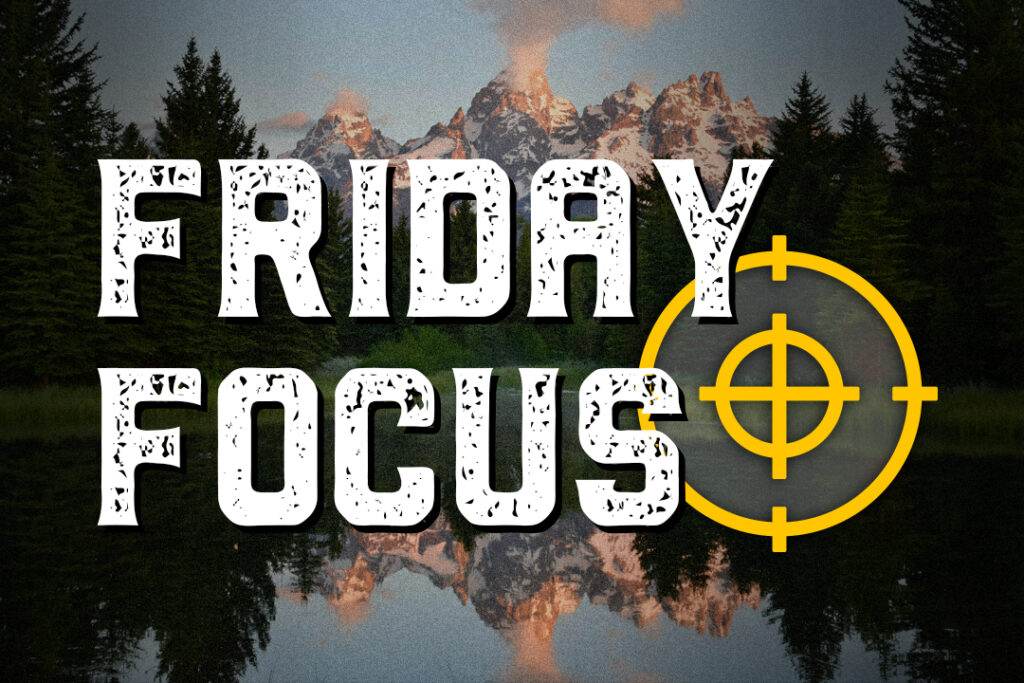
By Jennifer Kocher
Special to the Wyoming Truth
This story was corrected to accurately reflect a word used in a quote on Sept. 22, 2023, at 11:30 a.m. MT.
Cy Lee has spent his career advancing the goals of the Northern Arapaho people on the Wind River Indian Reservation. In his many capacities over the years – chief financial officer for the tribe, executive director of the Wind River Development Fund and tribal liaison for Gov. Mark Gordan – Lee has played a vital role in strengthening economic development and tribal relationships.
In August 2022, he launched a nonprofit, Blue Mountain Associates, LLC, to offer evidence-based prevention programs in the schools and collect data about early childhood trauma to identify where services and prevention efforts are most needed.
Lee, 47, was raised on the Wind River Indian Reservation and earned a bachelor’s degree in business management and administration from the University of Illinois. In April 2023, he completed a general management program at Harvard Business School. The father of five biological and three stepchildren and the grandfather of nine, Lee lives with his family on the Wind River Indian Reservation.
The Wyoming Truth recently spoke with Lee about his new venture. What follows are excerpts from the conversation.
In what area of prevention is Blue Mountain Associates currently focused?
Lee: We’re doing a domestic violence prevention program called Safe Dates in the local high schools here.We’ve started with domestic violence because the impacts are felt throughout the community at all ages…When I look back on that choice and the ability to recognize a healthy relationship at an early age in communities where it’s not openly talked about, the ability to express your desire for a safe relationship and healthy relationship is vital. . . . The other aspect to domestic violence prevention is not only does it provide the ability to identify healthy relationships, but it also empowers. And I felt like that was one of the most empowering things we could do…This is just where we are starting, right? We had to pick a place to begin, so we chose to start with Safe Dates because it was an evidence-based program with a curriculum that is available for purchase, and we didn’t want to reinvent the wheel.
What type of data will your new company collect?
Lee: One of the areas we’re going to start is an evidence-based program that trains people to identify children who are experiencing different levels of trauma. So, we want to start training teachers and other professionals how to identify, and then ultimately, within that institution or wherever they’re at – whether it’s the schools or elsewhere – to have someone who can do ACEs [Adverse Childhood Experiences] scoring and testing. We have to have trauma-informed care, but it should be based on a testing mechanism that gives us an idea of what level of care these children need. The best way to address the problem is to start with the youngest possible age group to identify children who are experiencing trauma, which is a form of victimization, so they don’t become adults who are victims. It’s the root cause narrative I’m trying to fill. So that’s where the data points will start. Right now, the question is, ‘What services do we need? Do they currently exist?’
How will data play a role?
Lee: Say you have a 16 or 17-year-old in the justice system or drug court. There’s a need to identify what happened in their early lives to end up there. . . Looking at different research papers on adolescents and teens, I learned a lot. But I was still left with questions about what allowed it to happen. Was it a lack of parenting? A lack of economic opportunity? Was that person raised in an abusive home? Not necessarily domestic violence, but were the children sexually abused? Was there alcoholism? And that’s the most difficult question to have in society, particularly in mixed communities like ours with border towns and different groups of people…And so, again, I have questions: ‘What led to that? What happened? What happened in those 10 years prior to that event? What got us here?’ That data doesn’t exist right now.
How will you go about collecting it?
Lee: The best thing I have going for me, the reason why I have the level of confidence I do, is because these are lived experiences I’m drawing from. And I think that’s the most valuable perspective any changemaker or innovator could have. . . . I mean, you see people with extreme talent – God-given talent – and because of a series of choices they made, they were never able to [utilize] that talent and share it with the world. You see, once in a generation, people come along. But because they have addiction problems, they never reach their full potential. They don’t get to live a full life…The concept I’m building on is that there are enough people in my community [who] have enough lived experiences, and I can find those people and recruit them to participate in being part of the solution.
Will this be difficult?
Lee: The most difficult part is going to be participation because of the sensitivity and the nature of the topic…these are issues that are extremely private, so the data collection has to have a certain level of integrity…But it’s important to understand the root of all problems – whether it be addiction, domestic violence or other. If you don’t understand the problem, how can you be part of the solution? And to understand the problem, the first thing you need is insight. You have to pick a point and get started.
What is your ultimate goal?
Lee: The ultimate goal is to create a prevention model that can be replicable. That’s the whole idea because domestic violence, addictions and all of those social problems are not specific to the reservation. These problems are everyone’s problems. Every community has domestic violence, every community has addiction issues, every community has mental and behavioral health issues . . . . What I’d like to do is have a replicable model of prevention and education that anyone can follow. In terms of social science and moral reasoning, being on either side of the political spectrum of Democrats or Republicans, none of that should matter when it comes to the health of our community. And so, when I talk about equality, am I talking about equality proportionately? … The goal is a healthier community, a healthier state, a healthier region, a healthier country, a healthier world for everyone.

